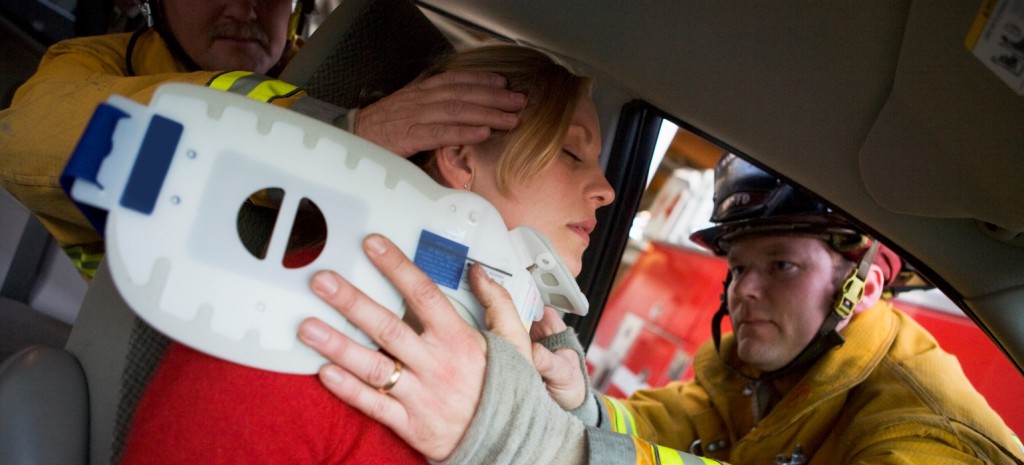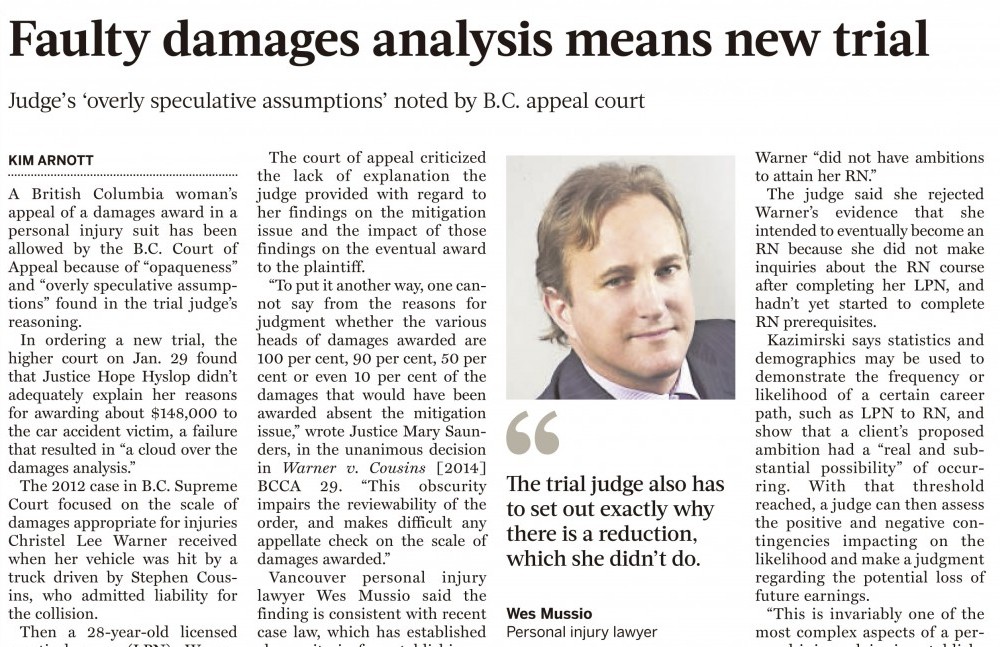The Importance of Keeping Business Records For a Wage Loss ICBC Claim
Posted on by Mussio Goodman
Keeping Records is Vital for your ICBC Claim Process
Many of our clients are self-employed labourers performing contract work. In these cases, when their injuries are affecting their ability to earn a living, we always stress the importance of creating a paper trail in order to prove their resulting wage loss.
For example, if a claimant has to turn down a job opportunity, he should confirm in writing with the would-be employer what the opportunity was, and how much it would pay.
In cases where an injured subcontractor is forced to hire extra workers to perform the labour he would have otherwise done himself, it is important to maintain invoices or receipts so those expenses may be considered as part of the ICBC claim.
In the absence of these records, and especially where there is a poor practice of record keeping prior to the accident, the Court is hesitant to fully compensate a claimant for the losses claimed.
An example of this can be found in the reasons of Musgrove v. Elliot, 2013 BCSC 1707. In that case, the injured Plaintiff was self-employed as a builder of residential decks and fences. Since his injuries impacted his ability to work, he was forced to rely on labourers to do the work in his stead. While the Court accepted his claim in principle, it awarded only a fraction of the damages sought due to a lack of corroborating records:
[56] In late 2007 Mr. Musgrove moved to the Victoria area and began to establish himself in his own business as a fence and deck builder. He had perhaps 10 months to build that business before the first of his two accidents, and in that time he kept lamentably few records of his earnings or expenses.
[57] There is thus little reliable evidence of what Mr. Musgrove actually earned before the first accident, and evidence of actual earnings is usually the most reliable basis on which to assess damages for income losses claimed as a result of an accident.
[58] Mr. Musgrove’s poor record keeping habits continued after the accidents, leaving little upon which to base a confident assessment of what he has earned since the first accident, or what he has paid out to others to do work he says he could and should have been able to do himself but for his injuries…
[72] I am satisfied that as a result of the injuries he suffered in the accidents, Mr. Musgrove had to hire others to do work that he would have done himself had he not been injured. This represents a loss to Mr. Musgrove for which he should be compensated.
[73] Mr. Musgrove must accept responsibility for the consequences of his poor or non-existent records. One such consequence may be an award lower than it might have been had he kept proper records. In all of the circumstances, I assess Mr. Musgrove’s loss of earning capacity at $20,000 from the time of the accident to trial.
Written by Wes Mussio of Mussio Goodman Law Group




